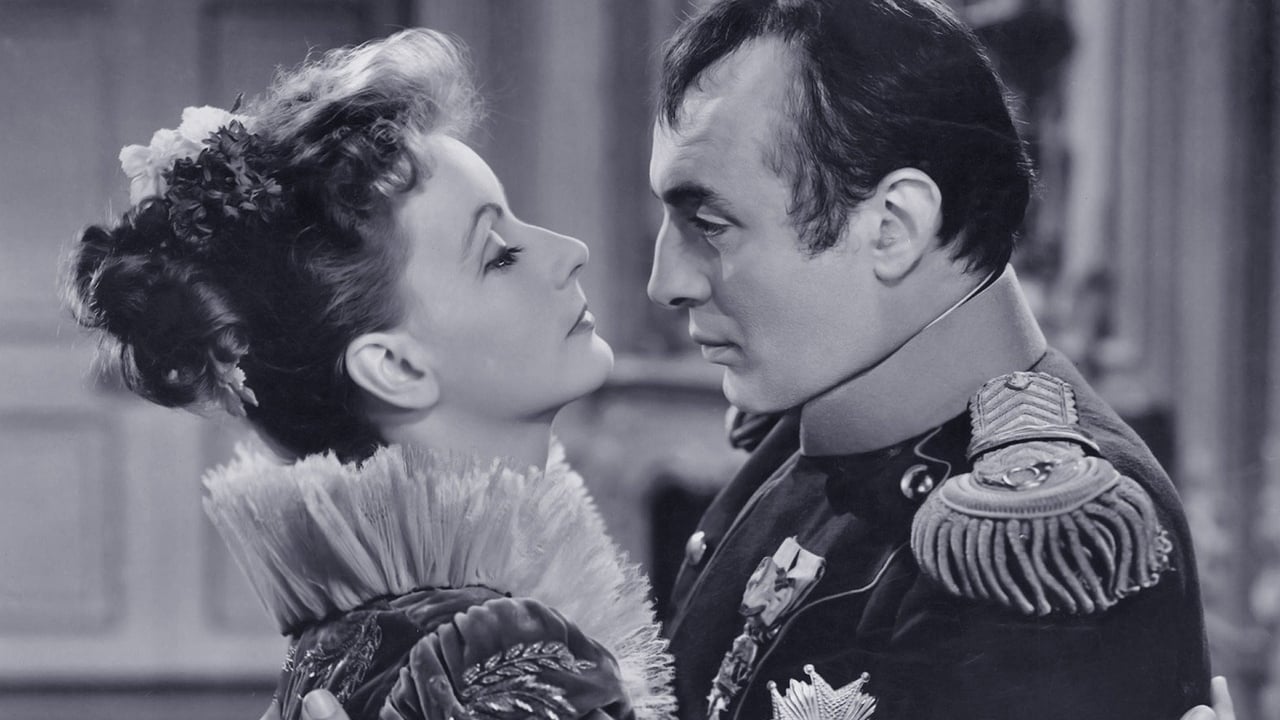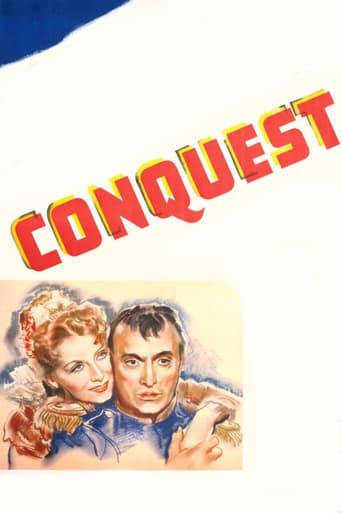

The 'plot summary' for this film really sums up the storyline, but there are so many other nuances going on here. CONQUEST co-stars the amazing Garbo as the MUCH younger wife of a Count ( Henry Stephenson ) and Charles Boyer. What other french-man would they have play Napoleon? He meets the countess on his way up, and cajoles her into being the mistress, which of course gives grounds for the breakup of her marriage. The awesome Ouspenskaya is in here as the batty old aunt Pelagia. Some comedy, as the crazy old aunt plays cards with Napoleon but refuses to belive an emporer could displace the king, and she insults him over and over. Ouspenskaya didn't make that many films, but in so many roles, she played the serious, heavy handed old woman with a past. The story has the Countess reluctantly "spending time" with Napoleon, purely "for the good of the country", but who knows how much of that is accurate. She did leave memoirs for her family, and some information can be found on Wikidepia . The trivia section says that this film was a HUGE money-loser for MGM, but maybe that was due to the length of the film, almost two hours. or maybe the subject matter was distaste-ful for a public that had just accepted the film production code. Napoleon's mom played by the fun Dame May Whitty. Apparently, a good chunk of this story actually occurred. For a period piece, it's not so bad. Some parts are a bit silly, but it does tell a story. Garbo only made two more after this. Near the end of her film career. Of course, she WAS nominated for the next one... Ninotchka. For those interested in when and where "Countess Marie" died, please visit the wikipedia link.
... View MoreHalfway through this film, I started thinking how it almost seemed like the kind of film George Cukor would direct, with fussy attention to detail. Instead, CONQUEST is directed by Clarence Brown, a workmanlike craftsman who also tended to dwell too long on intimate and wordy scenes that lack enough spark.However, he does elicit fine performances from Garbo and Charles Boyer. Garbo is radiantly photogenic as the married woman, wife of an elder man (Henry Stephenson), who for the sake of her country gives herself to Napoleon (Boyer). And Boyer is every bit as convincing as the man destined for his Waterloo, acting the part with every bit of his abilities and often stealing the show.But what really steals the show is the lavish production MGM gave this story. The sets are opulent, majestic and large, looming over every frame of the film with no expense spared. The artful B&W cinematography captures every elegant detail of costumes and sets with breathtaking results.And the supporting cast is a sturdy one, including Dame May Witty, Reginald Owen, Maria Ouspenskaya, Alan Marshal and Leif Erickson.Garbo is livelier than usual, even smiling more often for her "gayer" moments when enthralled with being in love, and the chemistry between her and Boyer is evident from the start.It's too bad the film wasn't fully appreciated as one of her best films when it opened, but time has been kind to it. Despite some slow moments amid a longer than necessary running time, it's an historical romance played out in the Golden Age tradition of opulence expected from MGM.
... View MoreGoodness, I can't believe, I'm saying this, but Garbo is good in ''Conquest''...... Here I was, complaining the other day, about Garbo's ''Inspiration'', and saying the only good performance she ever gave was in ''Ninotchka''...... I take that back now, so far, her good performances are given in both ''Ninotchka'' & ''Conquest''...... Garbo & Boyer displays well blend chemistry together...... (a surprise, since this is their only movie together) However, it's Boyer who carries off, and holds the movie together, w/ his charm & wit...... (during some flat spots) You could see, that Garbo is responsive to Boyer's performance/character, unlike her usual ''I want to be alone'' self...... What's more stunning, is Garbo smiles in this movie..... (more than once too!) That's enough good shock for me...... We do see a rare, lighthearted Garbo here, just like in ''Ninotchka''...... I would even say, that Boyer is Garbo's best co-star so far..... Charles Boyer & Melvyn Douglas......
... View MoreSome scenes in this film drag on too long and others are too wordy, but I thoroughly enjoyed Charles Boyer's performance as Napoleon Bonaparte. His slight accent accentuates believability. The same can be said about Greta Garbo's slight accent, but she is so stunningly beautiful I hardly noticed. She is also excellent in her last dramatic performance. There are two great scenes to watch for: the opening attack of the cossacks, riding their horses inside the stately home of Garbo and Henry Stephenson and wrecking it; and the ball at the palace in Warsaw, filled with noblemen and noblewomen adorned in gorgeous period clothing. (The gowns were designed by Adrian). Both crowd scenes are handled very well by director Clarence Brown. I was a little disappointed in the limited screenplay. Somehow, when I think of Napoleon I think of a grand epic such as "War and Peace," and not just his personal life. The only part of his war life you see is a brief scene of his retreat from Moscow in the harsh Russian winter. I was impressed by Napoleon's vision of a United States of Europe. He would have been delighted at the introduction of the Eurodollar this year.
... View More